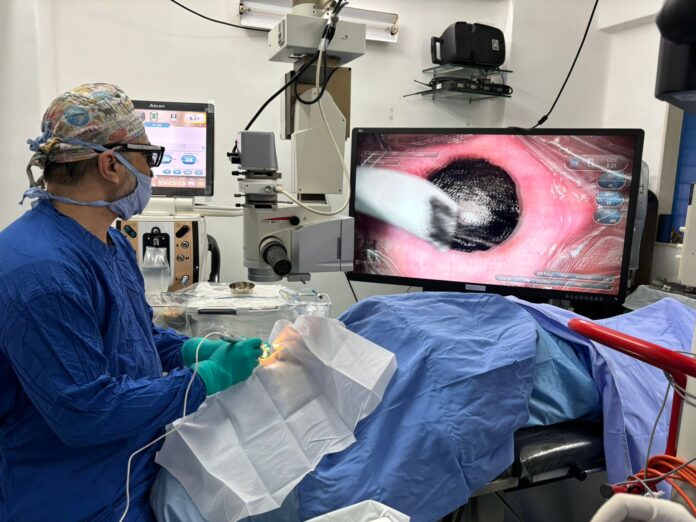In the realm of oculoplastic surgery, advancements continue to redefine traditional approaches, offering new hope and enhanced solutions for patients with corneal scars and leukomas. One such groundbreaking development is the adoption of corneal tattooing using permanent liner ink, a procedure that not only improves cosmetic appearance but also transforms the outlook for individuals facing visual impairments due to corneal opacities.
Limitations of Traditional Methods:
Traditionally, corneal tattooing involved the use of pigmented powder inserted into the cornea via surgical pocket creation. However, this method posed limitations in achieving desired color outcomes and offered little flexibility in color options. Enter the innovative approach employing permanent liner ink. This cutting-edge technique allows for the repetition of procedures until the desired color is attained, offering versatility with the ability to choose from a spectrum of colors.
Cosmesis and Functionality:
Keratopigmentation, as it is termed in oculoplastic surgery, holds significant promise for cosmesis, particularly in cases where the alternative would involve surgical removal of the eye followed by the application of an artificial shell. By opting for corneal tattooing with permanent liner ink, patients can achieve a more natural and aesthetically pleasing appearance without resorting to more invasive measures.
The choice of permanent liner ink over other alternatives is further justified by its sterility, ensuring a safe and hygienic procedure for patients undergoing corneal tattooing. This mitigates the risk of infection, a primary concern in any surgical intervention.
Patient Selection and Evaluation:
Identifying suitable candidates for corneal tattooing involves a thorough evaluation, typically indicated for individuals with blind eyes exhibiting corneal opacity. Pre-screening processes, including slit lamp examination and assessment of potential sight, help determine the appropriateness of the procedure for each patient.
Recovery and Sustainable Results:
As awareness of this innovative procedure spreads, patients in need of cosmesis for opaque corneas and impaired vision are expected to seek out this transformative solution. With the procedure now available at our Borivali branch, individuals can benefit from improved aesthetics and enhanced quality of life.
Following corneal tattooing, patients can anticipate a swift recovery period of 2-3 days, with outcomes that are not only favorable but also reproducible. While infection remains a potential risk, comprehensive post-operative care and antibiotic protocols effectively mitigate this concern, ensuring optimal safety and success for every patient.
Inputs by Dr. Abhijeet Desai, MS (Ophthal), D.O.M.S. (Gold Medalist ) DNB, MNAMS, FRCSED (UK), Head Clinical Services – Dr Agarwals Eye Hospital – Borivali

